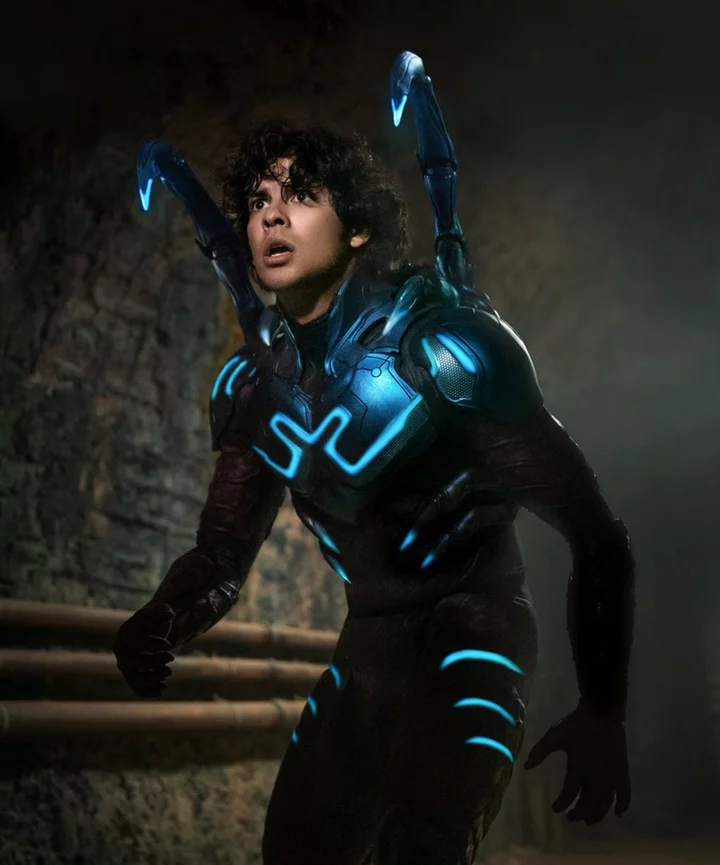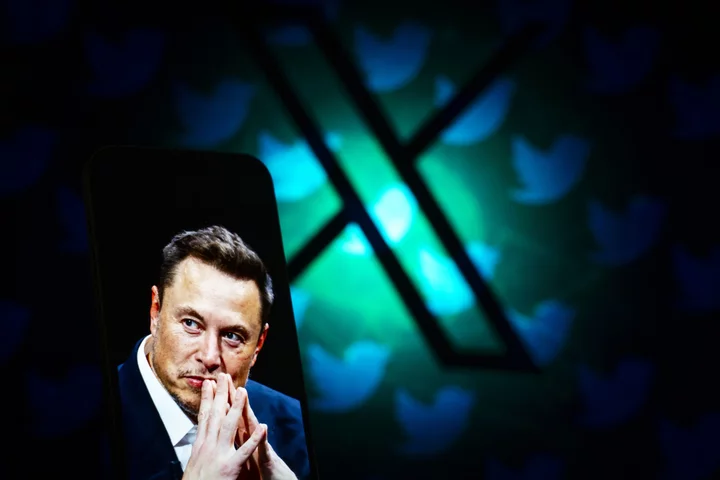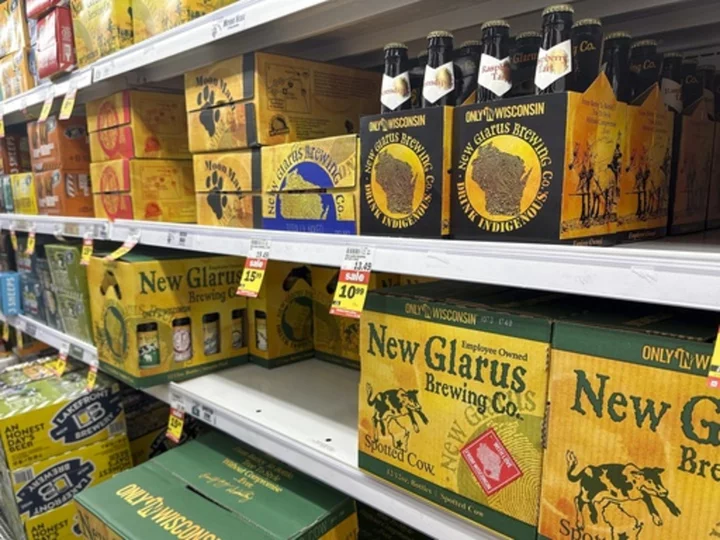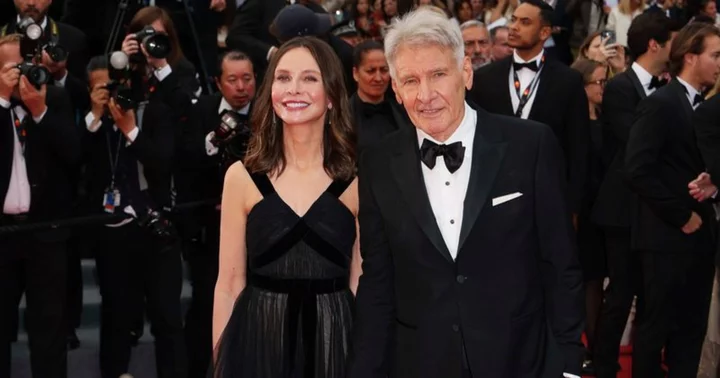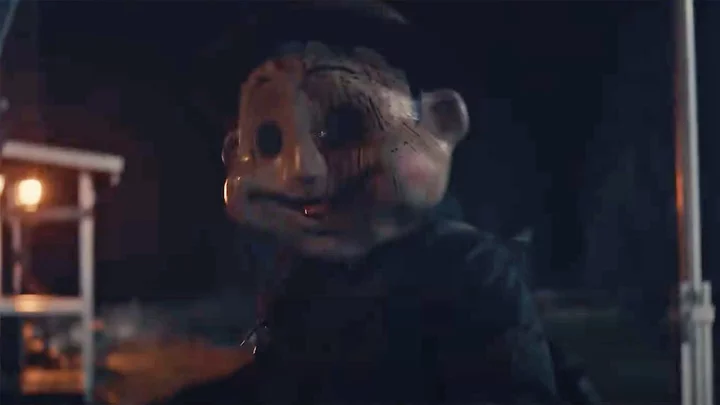On August 18, DC Comics’ Blue Beetle, its latest superhero movie, hits theaters across the country. As the first superhero film to be written, directed, and starred by Latines, it’s been billed as a win for Latine representation in superhero and sci-fi films. And as can be (unfairly) expected for a project with predominantly ethnically marginalized actors and creators, the stakes around its success are high.
Playing the titular role, Xolo Maridueña (Cobra Kai and Parenthood) will grace screens around the world as Jaime Reyes, a Mexican American who finds himself in possession of an ancient relic of alien biotechnology called the Scarab. Once the Scarab chooses Jaime to be its symbiotic host and grants him a super-cool suit of armor that has unpredictable and unbelievable powers, he becomes the superhero Blue Beetle, thus changing his destiny forever. The all-Latine cast also includes George Lopez, Bruna Marquezine, Harvey Guillén and many more. Somos asked Latine fans, critics, and the film’s director, Angél Manuel Soto, what they hope Blue Beetle delivers to its audience.
“As can be (unfairly) expected for a project with predominantly ethnically marginalized actors and creators, the stakes around its success are high.”
NICOLE FROIOFor Latino FandomWire film critic Sean Boelman, Blue Beetle has the potential to be a “truly historic” and successful self-contained superhero adventure. Pointing out that Blue Beetle was originally greenlit by Warner Bros. to go directly to streaming, Boelman speculates that the potential of the project seems to have convinced the studio that a theatrical release would be lucrative, which bodes well for the film’s success.
“It’s a great stride for representation both in front of and behind the camera,” Boelman tells Refinery29 Somos, especially when Latine characters have, with the exception of Black Puerto Rican Spider-Man Miles Morales, mostly been relegated to being the sidekicks — like America Chavez in Doctor Strange in the Multiverse of Madness or El Diablo in Suicide Squad.
But the production is being released during an uncertain time in the entertainment industry. While there’s a “return of cinema” after the record-breaking box office performances of Greta Gerwig’s Barbie and Christopher Nolan’s Oppenheimer, there is a trend of superhero movie fatigue. This year, Ant-Man and the Wasp: Quantumania and Shazam! Fury of the Gods critically underperformed. Even more, both the talent and writers behind the film are a part of the SAG-AFTRA strike.
“It’s a great stride for representation both in front of and behind the camera.”
Sean BoelmanIn this sense, Boelman says the performance of Blue Beetle in the box office is somewhat unpredictable. “Up until a few weeks ago, Blue Beetle was tracking as a massive bomb, but projections have doubled in the past week alone,” Boelman says. “Regardless, if Latine audiences show up to see the great representation on screen, [the movie] could be a moderate success. It is in the hands of Latine moviegoers to show the studios we care about the representation we see on screen.”
For Daniela Herrera, a DEI consultant and certified geek who is looking forward to watching the movie, Blue Beetle is an opportunity to expand on “positive, genuine, and more diverse” Latine representation that kids can look up to. “I really want to see lots of little Blue Beetles running around on Halloween and ComicCon,” Herrera tells Somos. “But I also want to see complex, authentic characters that steer clear from the harmful Latine stereotypes we’ve seen in the media for decades. I’d also love to see this movie use its platform to bring authentic topics to the table, very much like Black Panther did.”
“I really want to see lots of little Blue Beetles running around on Halloween and ComicCon.”
Daniela HerreraHerrera also emphasized that she hopes the movie will intentionally showcase a diversity of nationalities, languages, and ethnicities, rather than offer singular, whitewashed narratives of Latinidad. “Unfortunately, we’ve seen it happen before,” she says. “Even in all-Latine cast movies, Afro-Latines, Asian-Latines, Indigenous people, and the LGBTQIA communities are not openly or adequately represented. I hope this movie does our entire community justice in a way that inspires and invites others to learn more about who we are.”
In the last few years, there have been many Latine-led sci-fi projects like HBO Max’s The Last of Us , Netflix’s Wednesday, and Disney+’s Andor, Ahsoka, and The Mandalorian, but with the exception of Miles Morales in Spider-Man: Into the Spider-Verse (2018) and Spider-Man: Across the Spider-Verse (2023), which were both box office hits, Herrera points out that these projects don’t really discuss Latine culture at all. For this alone, Blue Beetle is a welcomed addition.
“I really hope this movie means that other Latino directors, writers, and creators might also have a voice.”
Angél Manuel Soto“In terms of the success of the movie, I think we’ll have to wait and see,” Herrera says. “When Black Panther was released, the character, franchise, and cinematic universe already had a huge fan base, which might not necessarily be the case for Blue Beetle, as not everyone has heard of the character before. We also need to keep in mind that the movie is being released during the double Hollywood strike, where actors are not able to promote their projects. This is why 27 Latino advocacy groups came together to support this movie under the hashtag #SupportLatinoCreatives.”
The success of the film also means that more projects like it could be produced. Director of Blue Beetle Angél Manuel Soto wants the film to open doors for other Latine directors, writers, and actors to tell their stories. “I really hope this movie means that other Latino directors, writers, and creators might also have a voice,” Soto told Somos.
But it feels like a lot of weight to put on one film. The stakes are high because we want more Latine representation in the genres we love, but it does seem unfair to put this responsibility on the shoulders of a cast and crew that had a limited budget in comparison to more mainstream superhero productions. Non-Latine white-led superhero movies flop all the time — especially in the last five years — and that doesn’t mean they will no longer be produced. Yet, when a marginalized community gets a chance like Blue Beetle, expectations are so high for a single story to succeed in the box office.
“The stakes are high because we want more Latine representation in the genres we love, but it does seem unfair to put this responsibility on the shoulders of a cast and crew that had a limited budget in comparison to more mainstream superhero productions. “
nicole froioMeanwhile, the projects that do feature and star diverse Latine characters, like Afro-Latino Miles Morales, queer America Chavez, and Indigenous Namor, aren’t marketed in the same way toward the diaspora. Evidently, we don’t just need more Latine characters — we also need the diverse characters that we do have to be promoted and recognized as the Latine representational wins that they are, portrayals that push back on the white supremacy and heteronormativity that exists within and outside of our cultures.
“The Latino experience is very big and diverse. I don’t see this movie as like the only Latine story. This is just one glimpse of an experience, and I hope that this opens doors for other people to be able to tell their stories their own way because every story deserves to be heard,” Soto says. “I want to see all the stories that I wouldn’t be able to tell but told by other people.”

